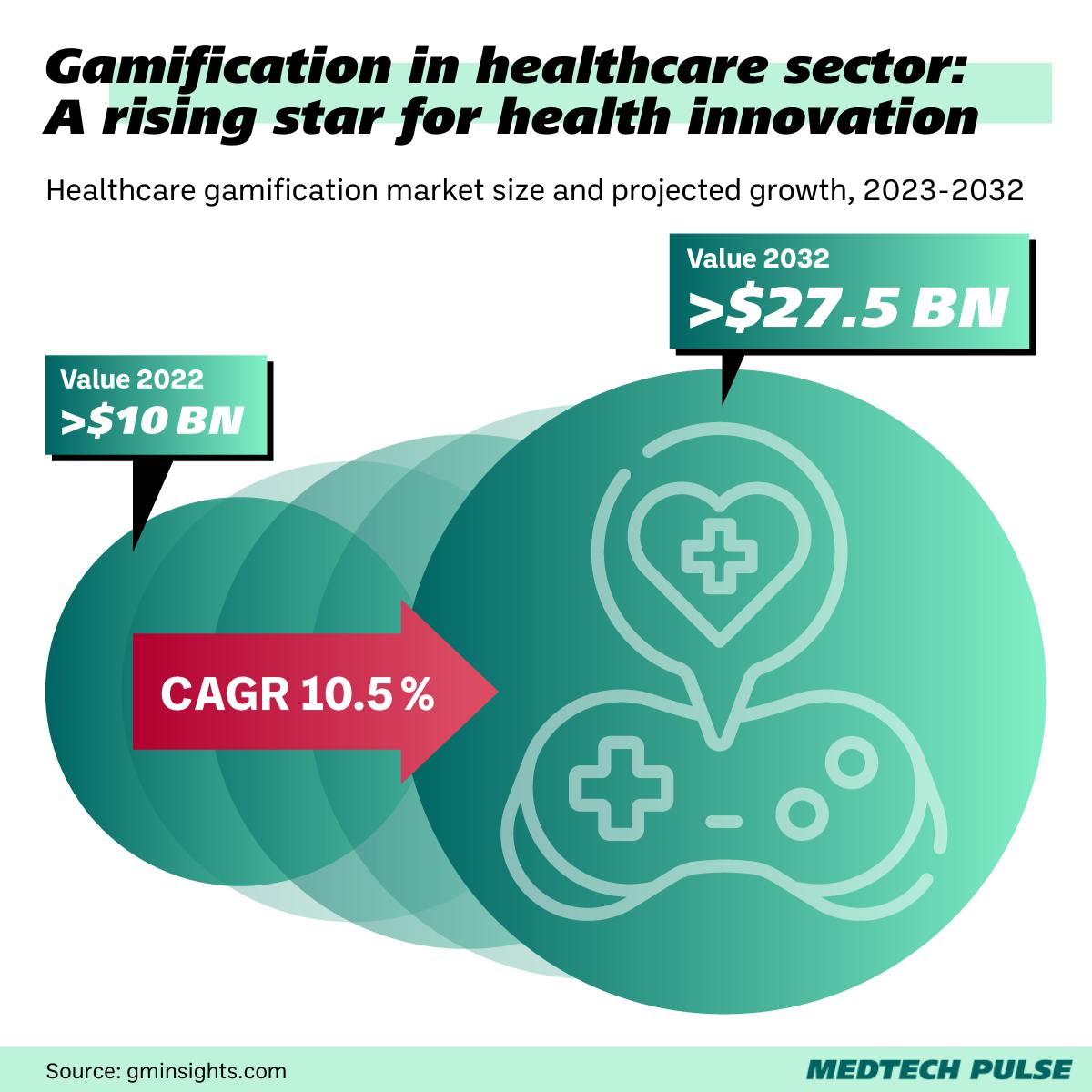Pull up your joystick, medtech is playing video games now
When you think of medical technology, you probably don’t think of video games. Akili Interactive wants to change your mind.
The digital health company shared results of a study that demonstrated that its video game-based treatment, EndeavorRx, may improve attention for adult patients with ADHD. This is a market-widening move for Akili, whose game-based treatment is already cleared for use in children from ages 8-12.
Akili isn’t the only one capitalizing on video games in the medical space. As it turns out, gamification seems to work for both patient adherence to treatment protocols and provider training.
Join us as we explore the exciting world of medtech video gaming. Ready, player one?
Video games for patients
The applications for video games in patient care may be wider than you think.
We recently interviewed Dr. Emilia Molimpakis, the CEO of medical video game startup thymia. While Akili’s medical video game approach focuses on mental health treatment, thymia’s work brings video games and AI together to both diagnose and monitor mental health and well-being.
And the brain isn’t the only target here. Amblyopia—also known as lazy eye—occurs when the brain begins to favor the use of one eye over the other. Fortunately, the eye coordination required for playing video games helps the brain better receive signals from both eyes in amblyopia patients. Former startups Amblyotech (now acquired by Novartis) developed their clinical video game treatment to do just that.
Another key way that this approach can be used to improve non-game-based medtech include the gamification of patient user interfaces. Even the use of basic digital game elements—such as the gathering of reward points—may make it more likely that a patient will use a device or monitoring app.
Video games for providers
As exciting as the development of video games as healthcare is, the use of video games for medical education may be even more of a logical application of the technology.
Of course, these games are no Mario Kart.
They’re developed by software developers and practicing physicians, creating virtual scenarios that mimic real-world medical cases. This allows providers to hone their skills without needing to wait for real-life patients. And the games’ levels provide clinicians with immediate feedback on whether their decisions are in line with current clinical recommendations.
In fact, providers and medical trainees who use Level Ex, professional medical video games help train physicians, can even obtain NIH continuing medical education (CME) credits for their time playing these games.
Why bother with a video game as a clinician? Clinical education can be fascinating yes, but pouring over lectures, literature, and even video cases can be a tedious way to learn. Like for patients, video games are effective as an adherence tool because they’re engaging.
Our perspective: Broadening the definition of what “counts” as medtech
Medtech tools may be fascinating to those of us who work in this industry, but for your average users, they wouldn’t generally be classified as “fun.” Medical video games for patients and providers change that.
There’s no surprise then that this area of medtech is expected to grow over the coming years, especially as more of the patient-facing aspects of this technology gain regulatory approval.

We’ve said it before: Medical applications of existing technology make some of the most exciting (and the most easy to disseminate) medical innovations. This is especially interesting with technology like video games, which many people generally associate with negative health impacts (i.e., impaired cognitive function).
From our perspective, this is yet another example of how our industry overall is growing, broadening in scope with what “counts” as medtech—from generative AI to GPS trackers and now to video games.